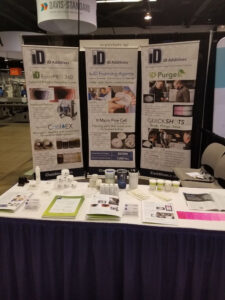Plastics Proud Blog

iD Additives 2023 Wrap Up
All of us here at iD Additives can’t believe it is the end of 2023! A lot of exciting and big changes for us this year. We are so excited

How To Navigate Freight During These Times
By: Carolyn Young (Sales & Marketing Coordinator) & Heather Vitullo (Logistics Manager) nn As we all have heard by now, YELLOW Freight (YRC, USF Holland) has filed for bankruptcy and

A Guide to NPE 2024 for Exhibitors and Attendees
For Plastics Proud Blog, we got to ask all the questions from an exhibitor and attendees point of view for NPE 2024 with Daniele Fresca. We are less than a

National Pet’s Day: The Pets of iD Additives
,As many of you know, pets become family very quickly. In honor of National Pet’s Day, we had everyone with pets at iD Additives share a picture and description of

iD Additives 2022 Wrap Up
All of us here at iD Additives can’t believe it is the end of 2022! We had an eventful year and are very proud of everything we have accomplished. Here

First Ever Female Duo Leads Marketing Efforts for NPE2024
Welcome back to the Plastics Proud Blog where we talk all things Plastics Industry! For our latest blog, we interviewed two very interesting plastics-industry women, Annina Donaldson and Tammy Straw.

